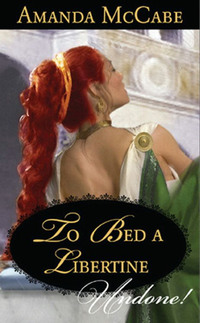
Полная версия
In the Tudor Court Collection

In the Tudor Court Collection
Outlaw in the Tudor Court
Ransom Bride
The Pirate’s Willing Captive
Anne Herries
Libertine in the Tudor Court
One Night in Paradise
A Most Unseemly Summer
Juliet Landon
Notorious in the Tudor Court
A Sinful Alliance
A Notorious Woman
Amanda McCabe
Maiden in the Tudor Court
His Runaway Maiden
Pirate’s Daughter, Rebel Wife
June Francis

www.millsandboon.co.uk
ANNE HERRIES lives in Cambridgeshire, where she is fond of watching wildlife and spoils the birds and squirrels that are frequent visitors to her garden. Anne loves to write about the beauty of nature and sometimes puts a little into her books, although they are mostly about love and romance. She writes for her own enjoyment and to give pleasure to her readers. She is a winner of the Romantic Novelists’ Association Romance Prize.
Contents
Chapter One
Chapter Two
Chapter Three
Chapter Four
Chapter Five
Chapter Six
Chapter Seven
Chapter Eight
Chapter Nine
Chapter Ten
Chapter Eleven
Chapter Twelve
Chapter Thirteen
Chapter One
Kathryn stood at the top of the cliff, looking down at the sea as it swirled about the rocks far below her. The wind tore at her hair, catching at her cloak, buffeting her from all sides as she stared out to the far horizon, her thoughts returning as always when she came here to that day in her childhood—the day when the bravery of her companion had saved her life. Never would she forget how they had gone down to the cove in direct disobedience to their fathers’ commands; how their curiosity about the strange ship in the bay had brought disaster.
Kathryn’s cheeks were wet as she wiped the tears with the back of her hand. There was no point in weeping. Dickon had gone from her, from his family, taken by the Corsairs who had come ashore to find water and food. It seemed that some of the villagers had been trading with these evil men who plagued the seas of the Mediterranean and occasionally ventured as far as the coasts of England and Cornwall. How often she had regretted that she had not been more mindful of her duty, for it was she who had prompted her companion to go down and investigate the strange ship.
Shivering, Kathryn recalled the way the fierce pirates had suddenly swooped on them as they walked innocently towards where the pirates were plying their trade with the rogue villager. That man had long disappeared from the village, for when Kathryn escaped from the clutches of the men who had tried to seize her, he must have known she would tell her story. But her beloved Dickon had not escaped. He had pushed her behind him, telling her to run for help while he had bravely fought against the men who attacked them. At the top of the cliff, she had stopped, turning to see that they were carrying Dickon on board the boat that had brought them ashore, and that he appeared to be unconscious.
Kathryn had run as fast as she could to her father’s house, spilling out her tale of abduction and treachery, but when the party of men had arrived at the beach it was to find it empty, with no sign of the brave lad who had fought against impossible odds. He was but fifteen when they took him, but Kathryn knew he would have been sold as a slave, perhaps to work in the kitchens of some eastern potentate. Or perhaps, because he was tall and strong for his age, he had been chained to an oar in one of the raiders’ galleys.
She had wept bitter tears, for she had loved Dickon. He was her friend and her soulmate and, though their families lived some leagues distant from one another, they had known each other well. Kathryn believed that it was the intention of both fathers that they should marry one day, when she was nineteen. She was almost nineteen now and soon her father would make arrangements for her to marry someone else. But in her heart she belonged to Richard Mountfitchet—her own Dickon.
‘Dickon…’ Kathryn whispered, her words whipped away by the wind, drowned by the cries of seabirds and the crashing of the waves against the rocky Cornish coastline. ‘Forgive me. I never thought it would happen. I did not know that such evil men existed until that day. I miss you. I still love you. I shall always love you.’
It was ten years to the day, Kathryn thought, and every year she came here at the same time hoping to see Dickon, praying that he might return to her and his family. Yet she knew it was impossible. How could he return? Their fathers had sent men to search the slave markets in Algiers. They had contacted friends in Cyprus, Venice and Constantinople, the city that the Turks now called Istanbul, but which was still known in the Christian world by its old name. Always, there was unrest between the Turks and the Christians; wars, quarrels, and differences of religion and culture made it difficult to conduct a search within the Ottoman Empire. For Sultan Selim II was constantly seeking to push out the boundaries of his empire and had boasted that one day he would stand victorious in Rome itself. However, there were a few men who could help and one of them was Suleiman Bakhar.
Suleiman had an English wife. He was a clever, educated man and travelled tirelessly, trading, trying to reach out to the world beyond the Ottoman Empire, and hoping to bring about peace, though there was such hatred, such a history of conflict between their peoples that it seemed the breach could not be bridged.
Kathryn knew that Suleiman Bakhar was in England at this time. He had promised to make inquiries on behalf of Lord Mountfitchet, but as far as she knew he had discovered nothing that could help them. Sir John Rowlands and Lord Mountfitchet had gone to London to speak with him, for they had other business of which Kathryn knew nothing, and it would suit them to meet with Suleiman at the same time. But they were expected to return today, and Kathryn felt a flicker of hope as she turned her steps towards the beautiful old manor house that was her home. It had once been fortified against attack from the sea, but, in these more peaceful times of Queen Elizabeth’s reign, it had become simply a family home rather than a fortress, with many improvements to make it more comfortable.
As she reached her home, she saw that a cumbersome travelling coach had pulled up in the courtyard and she began to run, her heart racing. Perhaps this time there would be news of Dickon…
Lorenzo Santorini stood on the steps of his palace. It was built at the edges of the Grand Canal, the huge lagoon that wound through the city and beneath the many bridges of Venice. The city had established trading arrangements with the Muslim world that had helped it to become one of the most powerful seagoing nations on earth a hundred years earlier. It was from here that the great Marco Polo had set out on his voyage of expedition that had taken him as far as the court of Kublai Khan, opening up the known world far beyond what it had been previously. However, the Turkish invasions and the unrest of recent years had led to gradual erosion of the Republic’s supremacy.
The Venetian galleys were, however, still thought to be some of the best craft available and remained a force to be reckoned with; the merchants of Venice were rich and influential—and Lorenzo Santorini was one of the most powerful amongst them. His galleys were famed for their speed, fighting abilities and the discipline of his men, none of whom were slaves.
He frowned as he saw the galley making its way towards the small jetty where he stood waiting. It was one of the fleet that he owned which guarded his merchant ships, and it was late returning from what should have been a routine trip to Cyprus to buy wine. As it drew closer, he could see that it had taken part in some fighting—which could only mean that it had been attacked by a Turkish or Corsair galley.
‘Welcome back, Michael,’ Lorenzo said as the captain mounted the steps towards him. He extended his hand, helping him jump up to the steps of the palace. ‘I thought there must have been some trouble—was it Rachid again?’
‘Is it not always Rachid?’ Michael dei Ignacio replied with a grimace. ‘He hates us and will harry our vessels whenever he gets the chance. Fortunately, I had left Cyprus in company with three other galleys and the ship that carried your wine. We lost one of our fighting galleys, but the merchant ship is safe. It is but an hour behind me, accompanied by two galleys. We came ahead because we have several injured men on board.’
‘They must be tended by the physicians,’ Lorenzo said with a frown, ‘and all shall be compensated for the hurt they have suffered.’ In Lorenzo’s galleys the men were paid for their work, not chained to their oars the way the wretched prisoners were in the galleys of those men most feared in these waters. The Corsairs, or Barbary pirates, as some were wont to call them, roamed the seas from the Mediterranean and Adriatic to the Barbary Coast and the Atlantic. They were fearsome men who were a law unto themselves, owing no allegiance to anyone, though some paid tribute to the Ottoman Empire.
‘It shall be attended to,’ Michael promised. Lorenzo was a good master to work for, and a mystery to most, for few knew anything of his history. Michael himself knew that Lorenzo was the adopted son of the man whose name he bore; of much of what had gone before he was as ignorant as the next man.
‘I know I can leave their welfare in your hands,’ Lorenzo said. His eyes were the colour of violets, a dark blue and as unreadable as his thoughts. His hair, the colour of sun-ripened corn bleached white at the tips, was worn longer than the fashion of the time; thick and strong, it curled in his neck. ‘I leave for Rome in the morning. I have been summoned to a meeting concerning these pirates.’ His lip curled in scorn, for he included the Turks, who had caused the merchants of Venice so much trouble these past fifty years or so and now had the audacity to demand Cyprus of the Doge, something that would be fiercely resisted by the Venetians. ‘As you know, there is talk of gathering a force to curb Selim’s power, otherwise he will sweep further into Europe. The Emperor is concerned and he hopes to bring in Spain as well as other allies to break the power of the Turks.’
Michael nodded, for he knew that his friend was considered an important man by certain men of influence in the Holy Roman Empire. Lorenzo owned twenty fighting galleys besides his fleet of four merchant ships, and he would certainly be asked to join any force that attempted to sweep the menace of the Turkish invaders from the seas. There was a widely held belief that, could they but break the power of the Ottoman Empire, many of the Corsairs would lose much of their own power.
‘They need to be curbed,’ Michael agreed. ‘In the meantime, we have captured one of Rachid’s oarsmen. We sank one of his galleys and this man was brought out of the water, still chained to the wooden spar that prevented him from drowning. We shall see what information we can persuade him to give us about his master’s stronghold—’
‘I will not have him tortured,’ Lorenzo said. ‘No matter that he is a Turk and an enemy, he shall be treated as a man. If he is willing to help us, we shall offer him employment in our ranks. If he refuses to co-operate, we will see if he can be ransomed to his family.’
Lorenzo rubbed at one of the wide leather bands he habitually wore on his wrists, his eyes as dark as the deepest waters of the Mediterranean and as impenetrable.
‘I do not believe he is of Turkish origin,’ Michael said. ‘He will not answer when spoken to, though he understands the language of his masters, also some French and, I think, English.’
Lorenzo looked at him in silence for a moment. ‘This man is not to be ill treated,’ he said. ‘You will leave his questioning to me when I return, if you please, my friend. And now you must rest, enjoy the benefits of home and family for a few days. You have earned them. When I return from Rome we shall meet again.’
‘As you command,’ Michael said, watching as his friend signalled to a small gondola that was waiting to ferry him out to his personal galley, which was further out in the lagoon. He was curious as to why his commander had suddenly decided that he wanted to interrogate the prisoner himself, but he would obey his orders. The reason Michael, born of good family, had chosen to sail with Lorenzo Santorini was because he respected him; he was a fair man, not cruel—though he would not suffer disobedience lightly.
Lorenzo was thoughtful as he boarded the galley, which was the flagship of his fleet, the fastest and newest of the vessels he owned, with the benefit of three sails, to be used when the wind was fair, thus giving the oarsmen a chance to rest. Such galleys were still much faster and easier to manoeuvre than the top-heavy galleons the Spanish favoured. Even the smaller, lighter craft of the English merchant adventurers, who had begun to be a considerable force in these seas, would find it difficult to keep pace with this galley. Turkish galleys seldom attacked his ships—they knew that he was a man to be reckoned with.
His real quarrel, however, was with Rachid the Feared One, a man of such cruelty that his name was well earned. The pitiful creatures that served at the oar in his fleet were wretched indeed, few surviving more than three years of beatings and torture.
Lorenzo’s eyes darkened as he remembered one such object of pity, a man who had survived by chance. He would never rest until Rachid was brought to justice, either at the end of a rope or by the sword. He had vowed it at the deathbed of the man who had adopted him, and one day he would keep his promise.
He regretted that he had lost one of his galleys in this struggle, for men must have died, though their comrades would have saved all they could. Rachid had also lost men and galleys, but for him life was cheap. He would replenish his oarsmen from the slave markets of Algiers or simply send a raiding party to one of the islands of the Aegean to capture men, women and children. The men would serve in his galleys, the women and children would be sold as house slaves—a trade that revolted all good Christian men and women.
It would be interesting to hear what plans were afoot in Rome, for he would welcome any fight that lead to the demise of such men. Rachid paid tribute to the Sultan of the Ottoman Empire and was free to pillage and murder as he would in these waters. If the power of the Turks could be curbed, it would make his enemy that much more vulnerable.
But even if he had to enter his very stronghold to do it, one day he would find and kill the man he hated.
‘It is so good to see you, sir.’ Kathryn kissed the cheek of their visitor. Lord Mountfitchet was almost as dear to her as her own father, and she looked forward to his visits. They had been rare enough since Dickon was stolen all those years ago. ‘Did you see the man of whom Father told me—Suleiman Bakhar?’
‘Yes, we spoke with him at length,’ Lord Mountfitchet told her with a sigh. ‘But there is no news. He has made inquiries for us, for, as you must know, his influence is far reaching in that part of the world. However, he has not given up hope—though he says that it would be rare for a man to survive that long in the galleys. It depends what happened to Richard when he was taken. If he was sold as a house slave…he could be anywhere.’
‘We must pray that he was,’ Kathryn’s father said, shaking his head over the sad business. ‘Otherwise…’ He looked sorrowful. For his own part he believed that Richard Mountfitchet must be long dead, but his friend had refused to give up his search and he did not blame him. If it had been his own son or—God forbid—Kathryn, he might have felt the same.
‘I do not believe that Dickon is dead,’ Kathryn said. ‘I am sure that I would have felt it in here.’ She pressed her clenched hands to her breast as if in prayer. ‘You must go on searching for him, sir.’
‘Yes, Kathryn.’ Lord Mountfitchet smiled at her. She was lovely with her dark red hair and green eyes, a sweetness about her mouth that was testament to her tender nature, but more than that she had helped him to retain the hope of his son being restored to him one day. ‘That is why I have come to stay with you for a while. It is in my mind to visit Venice and Cyprus. As you know, I have recently begun to import wine from Cyprus and Italy to this country. I began to take an interest in the region when I started my search for Richard, and I am thinking that I might decide to live out there in the future.’
‘You would leave England?’ Kathryn stared at him in surprise; she had heard nothing of this before now. ‘But what of your estate?’
‘The house and land could be left to my agents to administer. It might be that I shall want to return one day, but there is little for me here now. In Elizabeth’s England, Catholics like myself and your father are not given an equal chance. I mean no disrespect to the Queen, for I know she must take the advice of her ministers—and they live in fear of a Catholic plot against her. I have taken no part in such plots nor would I, for she is our rightful Queen, but there is nothing to keep me here. If our poor Dickon lives, he must be somewhere in that region of the world—perhaps Algiers, or Constantinople.’
‘We shall miss you,’ Kathryn said and her throat caught with tears at the thought that she might never see him again. ‘How shall we know if there is news of Dickon?’
‘I should write to you, of course,’ he said and smiled at her. ‘But if I live there I shall need a good friend in this country to keep an eye on my affairs. I have asked Sir John if he would join me in this venture of importing wines, and he has been good enough to agree.’
Kathryn looked at her father, who confirmed his satisfaction with the arrangement. ‘Then at least we shall hear from you sometimes.’
Lord Mountfitchet nodded, looking at her thoughtfully. ‘Your father is too busy to accompany me on this voyage of exploration, Kathryn, but I would like him to have firsthand knowledge of what I intend to do there. He has suggested to me that you might accompany my party. My sister, Lady Mary Rivers, was widowed a few months past and has agreed to make the journey with me, for she has nothing to keep her here either and we shall be company for each other in our dotage.’
‘You are not yet in your dotage, sir!’
‘No, you are right—but it comes to us all in time, Kathryn. Mary and I get on well enough, and I have no wish to marry again. She thinks me a fool to search for Dickon, but keeps a still tongue on the subject. She will be your chaperon on the journey, and I believe we shall find a suitable guardian to accompany you on the return journey—unless you meet someone that you would wish to marry.’
‘Oh…’ Kathryn looked at her father, a faint colour in her cheeks.
‘I had it in mind to look about for a suitable husband for you, daughter,’ her father said, and paused. ‘But Lord Mountfitchet is right. There is little opportunity for Catholics in this country these days. If you should chance to meet someone suitable who you liked while on your travels, I should be pleased. I know that Mary and Charles would take care of you and make sure that any suitor was worthy of you before advising me. Indeed, I shall probably make the journey to fetch you home myself. If I were not so busy at the moment, I would come with you. Your brother Philip will be home from Oxford next year and, if I cannot come myself, he will be happy to take my place, for he longs to travel.’
‘Yes, I know.’ Kathryn gave him a look of affection, for she was fond of her brother. ‘Would you truly not mind if I went with Lord Mountfitchet and Lady Mary?’
‘I should miss you, Kathryn,’ her father said, his eyes warm with affection. ‘Had your mother lived I might have been able to introduce you to a gentleman you could like before this. I have been too busy to see to it, and, besides, I think you need a woman to help you make such a decision. When Lady Mary told me she was to accompany Charles I thought it an opportunity for you to see a little of the world. I fear you must have been too often lonely since your dear mother left us.’
Kathryn smiled, but it was true enough. She had her good friends, neighbours and the elderly nurse who had been almost as a mother to her, but she had missed the time she had spent with her mother, talking and working at her sewing. It was nine years since the fever had taken her, just a year or so after Dickon was abducted.
‘Where do you intend to go first, sir?’ she asked, turning her clear green eyes on Lord Mountfitchet.
‘We should return to London and my sister,’ he replied. ‘Then we should travel to Dover, and from thence to Venice. I have made contact with a merchant there, a rich, powerful man from whom I have been buying fine wines these past three years. It is he who has encouraged me to expand my business. I shall consult with him before I make my final choice, though I believe Cyprus will suit me rather than Italy itself. I have it in my mind to establish a vineyard there.’
‘May I think about this for a little and give you my answer in the morning?’
‘Yes, of course. I know it is a grave decision—it would mean that you would be away from your home for many months.’
‘I believe I know my answer, but I would think about it,’ Kathryn said and smiled at him. ‘If you will excuse me now, sir, I shall leave you both, for I have things to attend to.’
‘Until the morning, my dear.’ Lord Mountfitchet bowed to her as she walked away.
‘She is a good girl,’ Sir John Rowlands said as the door closed behind her and sighed regretfully. ‘Her feelings for Dickon went deep and she has never forgotten him. I think they made some childish pact between them, but she has not told me the details. Until she accepts that all hope of Dickon is gone, I believe she will resist the idea of marriage with another.’
‘It would be a shame if she were to waste her life,’ Lord Mountfitchet said. ‘Much as I hope that we shall find some news of him in Venice, I would not have Kathryn grieve for my son for ever. She is young and beautiful of face as well as nature, and she deserves some happiness.’
‘Do you think this merchant of whom you spoke may have news?’
‘I pray it may be so. Suleiman Bakhar knows him well. He told me that Lorenzo Santorini has helped several slaves who have managed to escape from their masters. He sometimes buys them in the slave markets of Algiers or takes prisoners from the pirate galleys he sinks, and he will ransom a Corsair captain for galley slaves. I think he exchanged ten slaves for one such man just a few months back. He gives them the chance to work for him, and sometimes he will return them to their families. He might ask for a ransom for his trouble, but for myself I would gladly pay it.’
‘He sounds a man to be reckoned with?’
‘Indeed, he is. Suleiman admires him—they have a mutual respect, I believe, though Santorini hath no love for Corsairs or the Turks. Indeed, I have heard that he hates them.’
‘Yet Suleiman Bakhar calls him friend.’
‘Suleiman is a man of enlightenment, as you know. He has only one wife, Eleanor, though his religion allows him to have several, and he adores her. They travel together and though she adopts Muslim dress when in his country, she wears English garb in ours. Suleiman says that if anyone can find Dickon, it is Santorini.’
Sir John nodded. ‘And that is the true reason you want Kathryn to accompany you, isn’t it? You believe that Dickon will need both you and her if he is found.’









